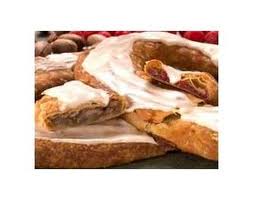Should This Man Go Free?
Today’s New York Times Sunday magazine contains a fascinating article about Greg Ousley, a 33-year-old Indiana man who is in prison for killing his parents when he was 14 years old. Journalist Scott Anderson reports that Greg is serving a 60-year sentence, with no possibility of parole until 2019. However, Greg’s appeals lawyer is pursuing a sentence modification procedure, which could potentially allow him to be released early if none of the victims’ next of kin object. Of the seven relatives in question – his two sisters and five aunts and uncles – only one aunt objects to the early parole. This is enough to derail the process for now, despite the fact that prison officials think Greg has been rehabilitated since he has been a model prisoner for years and has earned both a high school equivalency certificate and a college degree (magna cum laude) while in prison.
As Anderson points out in his article, parricide is a fairly rare crime, and the killing of both parents is rarer still. Most of the cases seem to involve severe physical or sexual abuse of the child-turned-killer. Greg Ousley’s case is more nuanced. He appears not to have been severely abused, although his parents clearly had issues and few would nominate them for parents of the year – at least if Greg’s version is to be believed. Greg’s dad had a fairly serious drinking problem, his mother (who had been orphaned at a young age) had abandonment issues and was prone to rages in which she verbally abused her children. Apparently neither parent was good at verbally expressing either love or empathy. Greg was angry at his parents for the way they treated him, and he was especially angry at his mother after he found her in the garage kissing his father’s best friend. Greg was also severely depressed. Both a middle school teacher and Greg’s mother seem to have recognized this, but their somewhat modest efforts to address the issue with Greg were rebuffed, and they did not pursue the conversation further. At some point Greg decided to kill his parents, he wrote about it in his journal, he told his friends that he would kill his parents, and ultimately he shot both his father and mother at point-blank range with a 12-gauge shotgun. Ironically, he did it on a night that he now remembers as a night when his parents reached out to him in a positive way, and the three had spent the evening playing guitar and singing at home.

